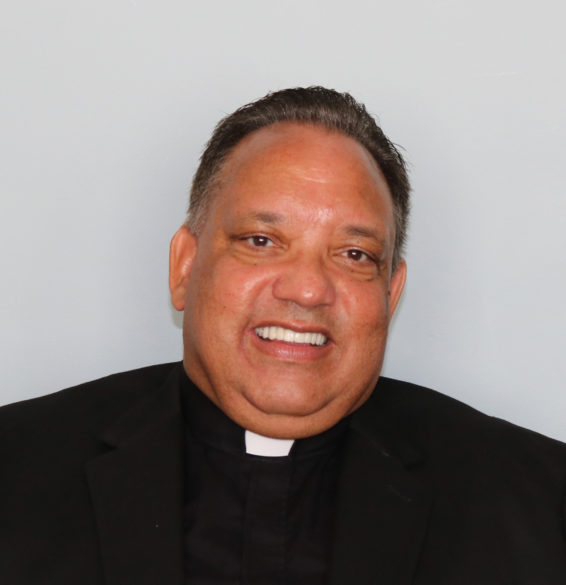Sister thea cAUSE
By Father Maurice Nutt
Recently a fellow priest friend told me that a parishioner called him because she was troubled by the way that George Floyd was being hailed as a saint by the media. “He wasn’t a saint,” she quipped. The priest replied, “No, he wasn’t a saint, but neither are you and I, we are all sinners in need of God’s grace and forgiveness.”

We’ve watched the excruciating video of an apprehended 46-year-old African American man by four Minneapolis police officers, hand-cuffed face down on the ground as one of the police officers relentlessly pressed his knee into his neck for eight minutes and forty-six seconds. Floyd in anguish cried out, “Please, I can’t breathe” to no avail and became unconscious and died of asphyxiation. Moments after George Floyd’s murder and continuing on today protests have erupted globally in cities large and small. The protesters have been multiracial and intergenerational indicating that they are united in their quest for justice and racial harmony. The demands for racial justice and equality, an end to racial violence, and police reform have reverberated incessantly.
No, George Floyd was not a saint, but he remains a symbol of something much more insidious: the sin of racism. This sin is an ever-present reminder that some people and institutions who have economic, social, cultural, political power and privilege deliberately or unwittingly subjugate and oppress those who do not enjoy equal power and privilege. Some social and economic advances notwithstanding, racism and discrimination continues to plaque the vast majority of people of color in our nation.
Systemic racism has been present in our country since 1619, the year that enslaved Africans were brought to the shores of what would eventually become the United States. Thus, for four-hundred years African Americans have fought for justice and equality: a fight that has never been fair nor equal. Four hundred years marked by the era of slavery, Reconstruction, “Jim Crow” segregation, the Civil Rights Movement, and the Black Lives Matter Movement. The struggle has been for the respect of their humanity and recognition as being created in the image and likeness of God — like all humanity. Dr. Martin Luther King, Jr. said, “Protest is the language of the unheard.” Protest is also the language of those who are tired of fighting and want the dominant culture to hear and to understand.
The voices crying out for the eradication of racism are not only being heard from the voices of the protesters on our city streets but from religious women and men, priests, laity, theologians, Bishops, and even from Pope Francis. Cardinal Blase Cupich of Chicago said, “People of color suffer discrimination and indignities not only from racist individuals, but from the very structures erected by our society that were meant to protect the vulnerable.” Pope Francis instructs us, “We cannot tolerate or turn a blind eye to racism and exclusion in any form and yet claim to defend the sacredness of every human life.” And still there is yet another voice of one who walked and worked among us and continues to call us to intercultural appreciation and racial reconciliation, Servant of God Sister Thea Bowman, FSPA. Here is her testimony: “I can be a bridge over troubled water. I can take you by the hand and take you with me into the black community. I can walk with you into your community, and if I walk with you into your community, I don’t enter as a stranger, I walk as your sister.”
We have a Mississippian who was a national witness to the possibility of racial healing and reconciliation. Sister Thea believed that we all must work to tear down the walls of racial division in our segregated and polarized society and church by making the effort to truly be in contact with one another: to get to know another’s story, their joys, sorrows, hopes and dreams. She was emphatic that the church as the Body of Christ must first confess her sin of racism, make amends and come to a place of healing and reconciliation. Then and only then can the church be a leader in racial healing globally. Sister Thea said: “May the Spirit within us and among us inspire us to keep on keeping on, in our homes and families, in our communities and in our church. May the Spirit inspire us, and may we share our spiritual and cultural gifts with the church and with the world. We’ve come this far by faith. Can’t turn around.”
Sister Thea, pray for us!
(Father Maurice J. Nutt, C.Ss.R. is a Redemptorist Missionary. Reverend Dr. Nutt’s areas of research and interests include pastoral theology, homiletics, African American culture, and the intersectionality of the church and the work of justice.)
